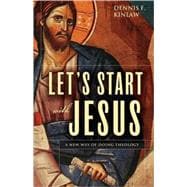
Note: Supplemental materials are not guaranteed with Rental or Used book purchases.
Purchase Benefits
What is included with this book?
| Acknowledgments | 9 | (2) | |
| Preface | 11 | (4) | |
| 1. A New Concept of God | 15 | (32) | |
| 2. The Level of Intimacy God Desires: Three Metaphors Illustrate God's Purposes for Us | 47 | (24) | |
| 3. Personhood and the Concept of God | 71 | (36) | |
| 4. The Human Problem: Why Is Identification with God Impossible? | 107 | (20) | |
| 5. The Way of Salvation: It Is All about the Nature of God | 127 | (10) | |
| 6. Fulfillment of Salvation: Perfect Love | 137 | (18) | |
| Notes | 155 | (4) | |
| Author Index | 159 | (2) | |
| Scripture Index | 161 |
The New copy of this book will include any supplemental materials advertised. Please check the title of the book to determine if it should include any access cards, study guides, lab manuals, CDs, etc.
The Used, Rental and eBook copies of this book are not guaranteed to include any supplemental materials. Typically, only the book itself is included. This is true even if the title states it includes any access cards, study guides, lab manuals, CDs, etc.
Excerpted from Let's Start with Jesus: A New Way of Doing Theology by Dennis F Kinlaw
All rights reserved by the original copyright owners. Excerpts are provided for display purposes only and may not be reproduced, reprinted or distributed without the written permission of the publisher.